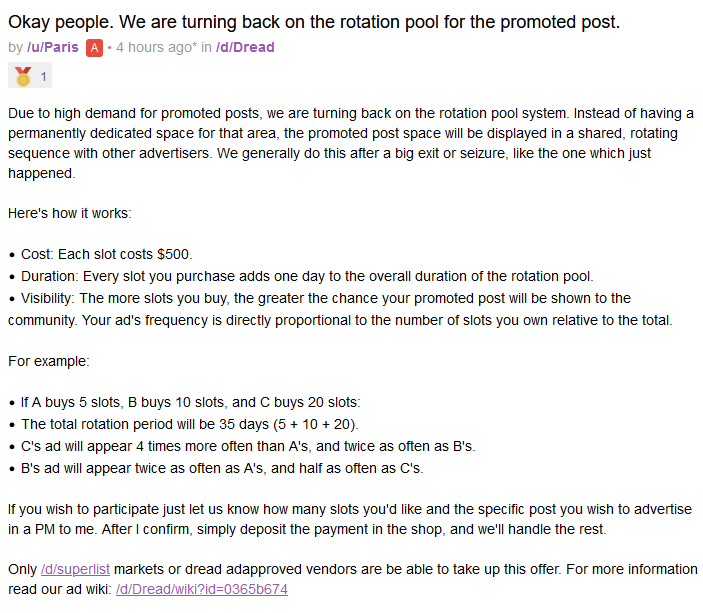How Wired Sold Out Their Readers' Privacy for Politics
Wired Magazine has truly lost its way, and their latest article is an outright example of political fan fiction masked as technical journalism. #simplex #privacy #signal #meta

Wired Magazine has truly lost its way, and their latest article is an outright example of political fan fiction masked as technical journalism.
Instead of focusing on empowering individuals with the tools necessary for their privacy and security, Wired decided to use this platform to promote its own political positions, which is nothing new. Still, this time, the hypocrisy is at a different level. This is a blatant deviation from the standard of objective, technical journalism it was once known for.

Specifically, Wired uses politically loaded language throughout, describing privacy tools as "dangerous" or risky if they're in the hands of individuals they dislike, yet simultaneously recommending these same tools to others, depending on the political context. This double standard—a hammer is okay when you use it, but dangerous when your neighbor does—is absurd and reduces any claim of technical objectivity to dust. For example, Wired specifically described how specific demographics—like journalists or individuals resisting a "second Trump administration"—need encryption, implying others do not. That's not journalism; it's simply political cheerleading using technical terms.
Logical Inconsistencies
Wired is full of logical inconsistencies—they criticize SimpleX Chat for its supposed "potential misuse" while promoting WhatsApp as a privacy tool. Let's be clear: WhatsApp is owned by Meta, the company formerly known as Facebook, which handed over user data to authorities over 395,000 times in 2023 alone. And yet, Wired somehow portrays WhatsApp as a privacy haven while clutching their pearls over SimpleX.

Are they simply ignorant of Meta's privacy violations, or is it worse?
Do they deliberately omit these details to guide readers toward corporate-controlled privacy tools that serve Silicon Valley's profit motives? These kinds of omissions aren't just misleading—they are dangerously irresponsible. Wired's article, through its selective outrage and politically expedient narrative, undermines the importance of consistent privacy for all individuals, regardless of political affiliation.
Furthermore, Wired simultaneously praises privacy tools to evade detection by oppressive entities while condemning SimpleX for its perceived "threat." In one section, they advise journalists to use Signal to protect themselves from an impending "Trump administration." The mental gymnastics required to simultaneously endorse privacy for one political group while condemning the same tools for others is staggering. This hypocrisy exposes Wired's inconsistency and shows us an alarming lack of journalistic integrity. (if you're reading this Wired, feel free to click that hyperlink and learn)
It was good to see that SimpleX was not taking it lying down.
.@WIRED recommends Signal and WhatsApp to break immigration law.
— SimpleX Chat (@SimpleXChat) December 2, 2024
Just recently Wired criticized SimpleX Chat and privacy, because it may be used by "nazis" – a word Democrats use for political opponents, as we saw during the US president election. 👇https://t.co/oEQjbR52uE https://t.co/T4wWMJh2VQ
Technical Ignorance in Recommendations
Wired's technical recommendations are not only contradictory; they demonstrate a fundamental ignorance of core technical concepts. Promoting WhatsApp—a platform owned by a data-mining behemoth—shows a misunderstanding of metadata risks that is either shockingly naive or deliberately misleading. Metadata, which reveals who you're talking to, when, and how often, is incredibly revealing, and Wired's failure to address WhatsApp's blatant metadata collection is not just an oversight—it's a glaring mistake with significant privacy implications.

Meta's documented data-sharing practices should have been a major point of concern. For example, in 2016, WhatsApp updated its privacy policy to share user data with Facebook, despite initially promising strong privacy protections. In 2021, data from over 533 million Facebook users was leaked online, including phone numbers and personal details, due to poor security practices. In 2022, nearly 500 million WhatsApp user records were also put up for sale on a hacking forum, exposing users to potential scams and phishing attacks. In 2023, Meta complied with hundreds of thousands of government data requests—requests that exposed user conversations, contacts, and even locations.
Wired telling its readers that WhatsApp is a reasonable privacy tool is like telling someone to lock their doors while leaving the windows wide open. WhatsApp’s integration into Facebook's data ecosystem means that user information is constantly fed into Meta’s massive data-harvesting machine, further undermining any claims of real privacy. While SimpleX offers fundamental privacy features like zero metadata collection, Wired instead emphasizes hypothetical fears of "potential misuse." This biased presentation becomes even clearer when considering the facts Wired conveniently omitted.
Wired also failed to mention other highly effective privacy tools available today. For instance, apps like Session, Briar, Matrix, and Tox offer strong privacy protections and are open-source, meaning anyone can verify their security claims. These apps, like SimpleX, prioritize decentralization, anonymity, and strong encryption.
* Session uses blockchain technology and offers no metadata collection
* Briar operates over Bluetooth and WiFi without relying on a centralized server, making it ideal for situations with limited or no internet connectivity.
* Matrix is a decentralized protocol that allows encrypted messaging without needing to trust a single authority.
* Tox provides end-to-end encrypted messaging that ensures privacy without relying on central servers. Including these alternatives would have provided a balanced and fact-driven perspective, but Wired chose instead to focus solely on a politically convenient narrative.
Media Ethics and Responsibility
Wired's ethical failings are not mere lapses in judgment—they are reckless and dangerous. On the one hand, they actively promote tools like Signal to evade government surveillance; on the other, they criticize SimpleX for the same capabilities. I believe it reveals an inherent bias that could have real consequences.
Under U.S. law, specifically Title 18 U.S.C. § 371 (Conspiracy), 8 U.S.C. § 1324(a)(1)(A)(v)(I) (Aiding and Abetting), and 18 U.S.C. § 2 (Principal Liability), Wired could be treading dangerously close to illegal territory by publishing what amounts to guiding illegal immigrants.
Wired's actions could easily be interpreted as aiding and abetting illegal activities, mainly when framed in the broader political context they paint.
Signal vs. WhatsApp Reality Check
Wired's bias becomes even more apparent when contrasting their treatment of WhatsApp and Signal. They downplay WhatsApp's glaring privacy flaws—namely, that Meta collects a trove of metadata, including contact lists, locations, and IP addresses—while simultaneously praising its encryption. Encryption is meaningless when metadata paints a complete picture of your interactions.
WhatsApp essentially operates as a data collection tool, and Meta’s willingness to share that information at the slightest provocation is well-documented. Meta was fined €225 million by Ireland's Data Protection Commission in 2021 for violating EU data privacy rules. In July 2024, Nigeria fined Meta $220 million for multiple violations of data protection and consumer rights laws on Facebook and WhatsApp. Additionally, in India, the Competition Commission imposed a penalty on Meta for abusing its dominant position through WhatsApp's privacy policy, which forced users to share data without an opt-out option. These repeated regulatory actions show Meta's ongoing negligence in protecting user privacy.

Signal, in contrast, is designed to be private. It collects almost no metadata and encrypts everything—including metadata. Signal also doesn't integrate with other platforms for data sharing, unlike WhatsApp, which is deeply intertwined with Meta’s vast data mining network. This distinction is crucial, as it ensures that users' information remains strictly confidential and isn't funneled into broader corporate data-collection schemes.
When government authorities came knocking at Signal's door, they had nothing to give. Meanwhile, Meta's compliance rate is enough to make any privacy-conscious person shudder. Wired's attempt to place WhatsApp and Signal on similar ground isn't just misleading—it's an outright lie by omission and a betrayal of its readers who trust it to deliver accurate, unbiased information. For example, WhatsApp employs content moderators to review messages flagged by users, contradicting its claims of strict end-to-end encryption and exposing yet another privacy vulnerability. This crucial point, which Wired glosses over, further highlights why Meta's privacy practices are fundamentally flawed.
SimpleX's Technical Advantages
Let's talk about what Wired conveniently ignored: the technical advantages of SimpleX Chat. SimpleX was explicitly designed to eliminate metadata collection. There are no phone numbers, no email addresses, and no central servers that know everything. Wired deliberately fails to explain these core features, which directly benefit privacy-conscious users. Instead, they focus on hypothetical dangers, crafting a fear-based narrative devoid of the actual technical advantages SimpleX provides. The architecture of SimpleX—fully decentralized and with strong encryption at every level—is superior in nearly every way to the tools Wired recommends.
Metadata collection is the Achilles' heel of privacy. SimpleX's approach ensures that no central authority can correlate user activity, making it vastly more secure than services like WhatsApp. Wired's failure to highlight this shows either an incompetence in understanding basic privacy concepts or, worse, a deliberate attempt to deceive readers into relying on privacy tools that serve corporate interests over user safety.
The Price of Incompetence
Wired's shift away from competent technical journalism into political fear-mongering isn't just disappointing—it's actively dangerous. Wired places its readers at risk by promoting privacy tools selectively based on political alignment. People trust Wired to help them make informed decisions about privacy—yet here they are, pointing users toward Meta's surveillance machinery while smearing genuinely private tools like SimpleX. Worse, they're using their platform to frame privacy as a political issue, thus endangering the very people they're claiming to protect.
Wired's hypocrisy, technical incompetence, and political maneuvering have led them to a point where they could even face legal repercussions for their actions. Under U.S. law, their "how-to" guide for evading government detection walks a very fine line into potentially illegal territory. At the same time, their journalistic integrity is in shambles, having transitioned from providing reliable, unbiased technical information to offering politically charged, technically flawed advice.
Readers deserve better. They deserve fact-driven journalism, technically accurate and devoid of political slant. Wired used to be a beacon of that—now, they've devolved into a cautionary tale of what happens when journalism loses sight of its core mission: truth. Let this be a reminder that privacy tools are not political weapons—they are tools of safety, meant for all, regardless of politics.




